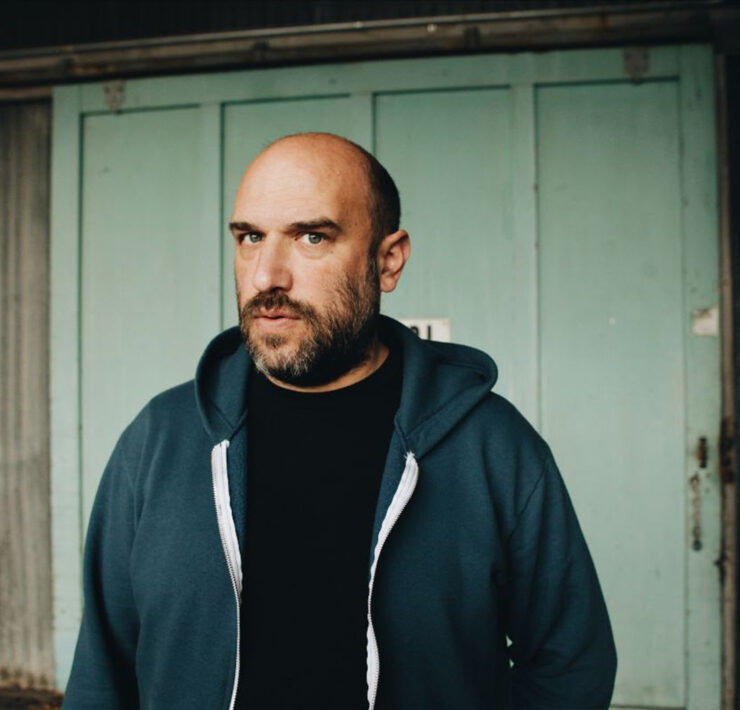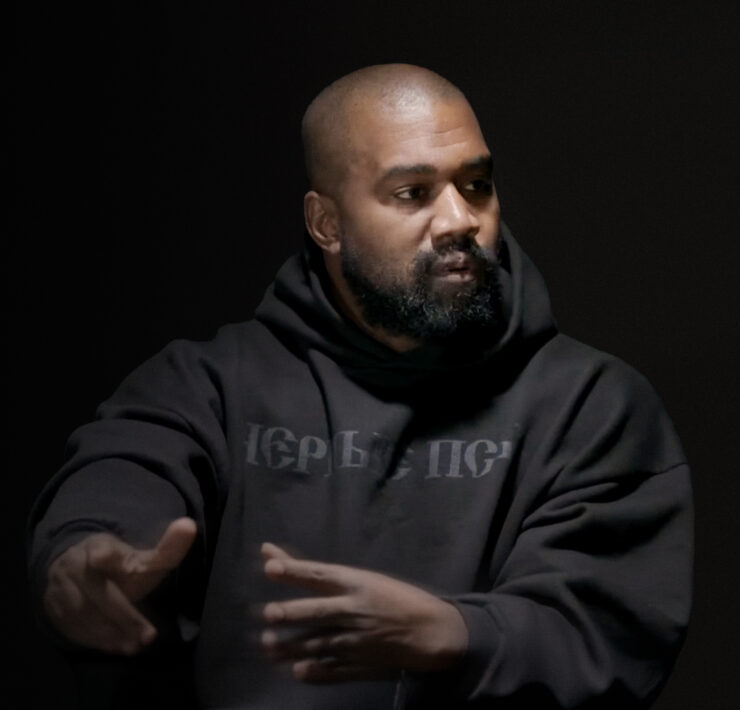Tauren Wells is shining a light right into the darkness.
On his latest album, Joy in the Morning, the award-winning worship artist isn’t shying away from the rough parts of life. He doesn’t want to wrap everything up in a neat little bow, packaging it away as all “good and fine.” Instead, he’s facing the darkness head on, bringing light and joy and hope into a world that desperately needs more of it, especially as he gets ready to head out on tour this fall.
Wells’ album highlights the importance of working through your emotions, not going around them. It’s an idea Wells returns to often in our conversation together. Wells sat down with RELEVANT to share some insight into his latest project, how he looks for joy every morning, and why he wants to encourage others to not give up when life gets tough.
This conversation has been edited for length and clarity.
Where did the inspiration for your new album come from?
This whole thing is really about giving myself permission to bring my whole self into music. I love the dance, I love pop music, but I love worship. I love songs that are just so obviously about my faith and about Jesus and what He means to me. At the same time, my faith is alive in so many different areas of my life.
There’s songs about my personal journey with my wife just trying to learn how to listen just to listen; not listening to try to find solutions, but being more empathetic. I have a song with Tiffany Hudson from Elevation Worship, where we’re singing about this idea of, I can’t be your piece. Like, that’s not my place but I can stand beside you in the storm. So it’s just ideas like that where I feel it’s important that I’m singing about these ideas and what it means to me to be a Christian in every aspect of my life.
How do you find hope and joy in the midst of difficulties?
I keep coming back to this word “permission,” because it’s just so fitting for me. But first of all, you have to give yourself permission to process and I think, a lot of times inadvertently, our faith has been this bandage that we just wrap around wounds that need treatment and we have to get to the resolution. I’m not going to say every one, but most Christian songs that you hear it’s resolved in three minutes or less. You’re at the absolute bottom and it doesn’t seem like there’s any way out but then by the end, life is amazing and Jesus is good. And it’s like, “Yes, that is true.” But I’m trying to get beyond the surface and let the waters be choppy; acknowledge the storm, acknowledge the fact that we’re sinking.
Now, the undercurrent may be joy or peace but we’re still wrestling on the surface of what it is to feel disappointed. To work really hard for something and to come up short, to pour your life into a relationship and it not works, to try to be present with your children, only to have them for their own reasons, pushing you away. We need to deal with how these things actually affect us on a soul level. And the first thing is giving yourself permission to process it, not to put a bandage or a bandaid on it.
Counseling has become a big part of my life. And just talking about how to navigate life and you need to process success as much as you process failure. You have to be able to process what happens when everything is going well and keep your heart headed in the right direction just as much as when you feel like you’re on the bottom. Having that other voice speaking into that process has been really beneficial for me, but I processed a lot through songs too.
The only thing is I usually don’t put those songs, because I’ve always felt like this isn’t going to connect. It’s not going to resonate, you can’t sing it in a room with other people on Sunday and where’s the space for that? But with this particular album, I wanted to go fully into that space and that’s why I’ve got this song called “Empty.”
When I was writing that song, I was sitting in this writing room I have in my house, which is a major blessing. So I’m in a designated space, looking around at these frames that are hanging on my wall that signify this level of achievement and connection with people that I’ve been graced with at this stage in my life, hearing my kids running through the upstairs. My wife is doing her thing in the other room and to top it all off, it’s a night that a particular award show is coming on television. And I’m up for some awards and I’ve got family coming over and it’s going to be like a celebration.
And in the same moment, I’m sitting there surrounded by more than I could ever deserve and certainly more than I’ve earned. And I go over to the piano and the words that come out are, “You could have it all and still feel empty.” Now my Christian reflex is to be like, but the only thing Jesus leaves empty is the tomb. It’s like, you have to find a way to redeem that feeling. And when I read through the Scriptures, I see the wrestling matches that we have been able to witness because the Bible is a tell-all on all of these heroes that we have. I see other people wrestling with questions. I see David wrestling with them and then his son wrestling with them.
I was just reading this book, it’s talking about Solomon and how he literally experienced everything a human being could experience to bring fulfillment and he still said, “It’s all meaningless.” I just feel like we should have permission as believers to say, “There are so many good things in my life. And yet in this moment I feel empty.” Then allow the question as to why am I feeling empty to lead us to better answers. It’s this thing of, even though it’s good, it’s not everything. My kids are good but if I’m trying to get them to be the singular source of my fulfillment, I’m going to be empty. With my wife, she is a good wife, but if I’m looking at her to be my source, I’m going to be empty. If it’s what’s hanging on my walls that defines me, I’m going to be empty. And so if I can go there, hopefully other people can go there with me and just be like, “You know what? Sometimes even though things are good, things can not feel good.”
Why do you think this conversation isn’t always present among believers?
I think it’s a mindset and I would say it’s two things. One, it’s that we’re unwilling to be vulnerable and show people who we really are and how we really feel. But it’s connected to part two, which is we’ve experienced rejection from trying to be vulnerable before. We put on our armor so that we’re never vulnerable again so that we’re never rejected again, we’re never hurt again. And we just have not done a very good job of leading from our weaknesses, from leading from our wounds. Like I said, everything doesn’t have to come to a perfect conclusion. There is power in saying, “I don’t know.” There’s power in saying, “I’m struggling. I’ve had a few off days, I’ve had a few off months.” And finding God in that, and that’s what is beautiful about Jesus, is He doesn’t tell us to ignore how we feel.
If we allow Him to, He will enter into our feelings with us. Our feelings are not telling us the whole story, they’re telling us some of the story. We need the truth of who Jesus is to filter our feelings through. But we typically never allow Him to enter into those spaces because we’re trying to be so protective and keep up this image. What I’ve realized is, Jesus didn’t die for my image, Jesus died for who I really am. So I’m just imprisoning myself with my pain if I try to keep Him outside of it. There’s this whole adage in Christian culture right now like faith over feelings.
And I think I understand the intention of that, but I don’t think it’s faith over feelings because that means I’m ignoring how I feel. I think it’s faith within my feelings. It’s bringing the gospel into my sadness because my sadness is telling me I’ve lost something that I loved. That I’m grieving something that I honored. It’s the gospel alive in my loneliness because the gospel tells me that if I don’t have the presence of God and an intimate relationship with Him, I can be surrounded by people and still feel alone. So every emotion is a gateway into a deeper truth that God wants to teach us but if we’re not given permission to feel, we never see what the gospel means to our emotional life.
I totally get what you’re saying. If you ignore those painful emotions, you might miss out on the joyful ones, too.
Right. If you ignore the moon, you don’t appreciate the sun. If you don’t feel what it’s like to be in the dark moments then the warmth and the beauty of a sunrise doesn’t really mean much to you. It’s when you recognize you’ve been in a difficult place, that it means something. And with that kind of joy in the morning, I wanted to lift people’s eyes to the horizon again. I feel like so many people feel the night season, I’ll say, that we’ve been in over the past couple of years, is this perpetual thing that’s never going to end. But there is a morning coming, and of course I believe God allows the sun to rise in different seasons of our lives and we get to experience His goodness in the here and now, but don’t get it flipped.
There is a greater horizon and ultimate morning that we’re going to step out of the night of this world into the morning that God has for us, where the only thing that shines is the sun. And there is no weeping, there are no tears, there is no disappointment or hurt, it is just the goodness of God radiating for eternity. And so even our weeping, the Scripture says that those who sow in tears will reap in joy. Well, that’s not just a promise for here and now — it is — but it’s a promise for eternal happiness, eternal joy, eternal peace. And I want to remind people that there is a Heaven, and that there is joy in that place.
























